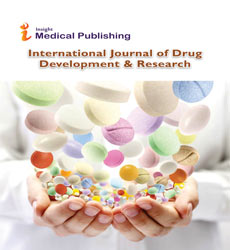Abstract
Ethnopharmacological approach in Endodontic Treatment: A Focused Review
Endodontic or root canal treatment involved removal of infected tissue and microorganisms from within the root canal space to prevent further infection of the periradicular tissues as well as to allow healing of these tissues. This critical process involves the use of some chemical substances for disinfection of the root canal space. Several studies have shown that contemporary chemical agents [both proteolytic and acidic] do not achieve complete disinfection, and have other disadvantages like weakening of the tooth structure, predisposing to fracture of the tooth. Recently, there has been a growing trend to seek natural remedies as part of dental treatment. This may be termed as ethnopharmacology or phytotherapy. This paper aims at providing a comprehensive review that focuses on the herbal agents that have been evaluated in endodontics. It also briefly reviews the agents with potential applications in root canal disinfection. The agents reviewed include Morinda citrofolia [Indian Noni], Terminalia chebula [Triphala], Curcuma longa [Turmeric], Glycyrrhiza glabra [Liquorice], Propolis, Melaleuca alternifolia [Tea Tree Oil] and Azadirachta indica A. Juss [Neem].
Author(s): Prasanna Neelakantan, Nithya Jagannathan , Nabeel Nazar
Abstract | Full-Text | PDF
Share this

International Journal of Drug Development and Research peer review process verified at publons
Abstracted/Indexed in
- Google Scholar
- Genamics JournalSeek
- China National Knowledge Infrastructure (CNKI)
- CiteFactor
- Scimago
- Directory of Research Journal Indexing (DRJI)
- WorldCat
- Publons
- MIAR
- ResearchGate
- University Grants Commission
- Secret Search Engine Labs
- Euro Pub
Open Access Journals
- Aquaculture & Veterinary Science
- Chemistry & Chemical Sciences
- Clinical Sciences
- Engineering
- General Science
- Genetics & Molecular Biology
- Health Care & Nursing
- Immunology & Microbiology
- Materials Science
- Mathematics & Physics
- Medical Sciences
- Neurology & Psychiatry
- Oncology & Cancer Science
- Pharmaceutical Sciences


